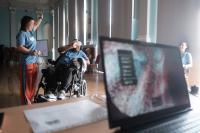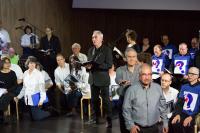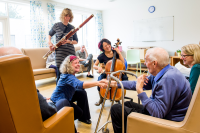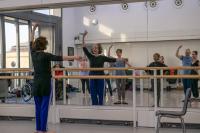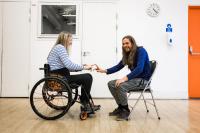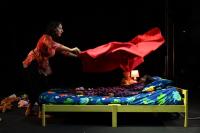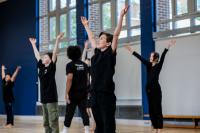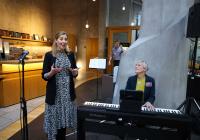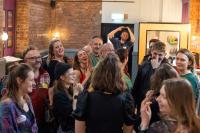Work by a theatre company for learning-disabled perfromers is providng them with benefits offstage as well as on, a study has found
Winchester-based Blue Apple Theatre commissioned a study from Dr Rachel Harrison, a Senior Lecturer in Health and Social Care at the University of Winchester, to look at the impact of its work with people with learning disabilities.
The study found that taking part in Blue Apple’s sessions and performances had many ongoing benefits for the participants by improving their emotional wellbeing and self-confidence.
“Blue Apple hadn’t realised that what participants valued above everything else were the relationships that they formed when they came to the group,” said Dr Harrison.
“Being accepted for who you are and being part of a group is so important.”
Coming to Blue Apple gave participants a unique place where their views and opinions were always listened to and considered, she said.
Interviews also revealed that the skills participants learned for shows helped them in ordinary life, boosting confidence and self-esteem.
“People told me about being able to speak more clearly because they had learned to project their voice,” said Dr Harrison. “This has given people confidence. One person said 'I can go shopping now because people can understand what I say’.”
Others told Dr Harrison their maths skills had improved thanks to being involved in musical numbers where they had to count the beats to keep in time.
Blue Apple’s Artistic Director Richard Conlon said: “Although we see for ourselves the development and growth of wellbeing and confidence in specific individuals, it is reassuring to have that view validated externally.
"We are also very pleased that we can use these insights to track change in our how participants feel about their experiences at Blue Apple so that we can respond, change and grow to meet their needs.”




